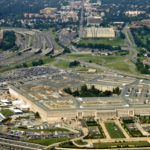
The government’s current approach to increasing cyber resilience “will not produce adequate security,” Steven Chabinsky, chief risk officer for CrowdStrike, said during a testimony before the Senate Homeland Security and Governmental Affairs Committee this week. “Having improved security is not the same thing as having adequate security,” he said. Chabinsky said the National Institute of Standards and Technology’s (NIST) Cybersecurity Framework should be “required reading” for industry, but he was skeptical that the overall approach of detecting intrusions will yield…













